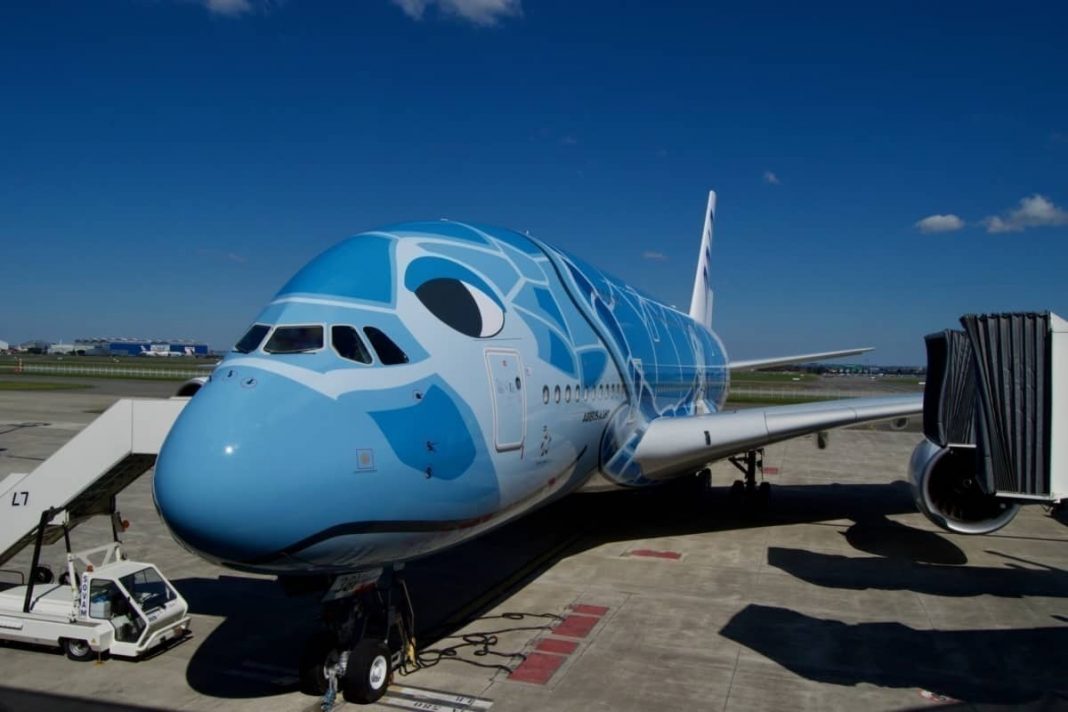Flights to nowhere are an unexpected side-trend of the pandemic. With regular travel either difficult or impossible, airlines in Asia kicked off the idea of operating sightseeing flights to help grounded passengers scratch that travel itch. New research from The Harris Poll suggests there is room for more of these, with almost two-thirds of Americans saying they would book a flight to nowhere. Here’s why.

Flights to nowhere – the latest mega-trend
Flights to nowhere have become all the rage in the current environment of travel restrictions. The vast majority of these have been in Asia, where constraints on passenger movements have been stricter. Australia has joined in too, but in Europe and the US, there’s a distinct lack of opportunities to fly nowhere at all.
That’s largely due to regular flights operating pretty normally, albeit with reduced networks and frequency. But does that mean we in the west don’t want to take a flight to nowhere? Apparently not.
Stay informed: Sign up for our daily aviation news digest.
According to recent research from The Harris Poll, almost two-thirds of Americans would definitely be interested in taking a flight to nowhere. Its study showed that 63% of the nearly 2,000 respondents said they would be keen to book onto a sightseeing flight, if one were to be offered.

Why people want to fly nowhere at all
It seems that wanderlust is deeply ingrained in our souls. Always an adventurous species, homo sapiens is clearly not enjoying being locked down, and is keen to get away in a safe and straightforward fashion. Flying from their local airport back to their local airport would satisfy some sort of ingrained need for exploration, without the risk of extended quarantine and exposure to the virus in the process.
The Harris Poll asked these people what their reasons for booking a flight to nowhere, should there be one, would be. More than half (53%) said it was because “we all need a moment of escape”, echoing the lockdown fever that we’re all feeling right now. Around the same number (52%) said it would feel like a mini-vacation.

Almost as many (44%) said they needed a change of scenery, and just over a third (38%) said it would satisfy their itch to travel. 22% said it would offset their cabin fever, while 21% said it would be in order to create a sense of normalcy.
However, it’s the just under one third (28%) where we at Simple Flying find ourselves. These respondents said their main reason for booking a flight to nowhere would be simply because they miss flying. We have to agree on that one.
Would they pay?
The research suggests that people would be willing to pay a fair price for the privilege of a sightseeing flight, but not a huge amount. The average figure that was settled on in the survey was around $260, a price that would usually get you around two to three hours of flying time in the US.

Also interesting to note was the split in demographics between older and younger people. Generation X (born between 1965 and 1980), along with millennials and Gen Z (1981 – 2010), are much more likely to want to fly, with 73% and 69% respectively saying they would book a flight to nowhere. Boomers and Seniors responded in the affirmative at 60% and 46%, respectively.
Right now, it’s all academic, as there is no US airline offering sightseeing flights. But perhaps the trend will catch on, given the wild success of these types of flights in other parts of the world.
Would you book a flight to nowhere if they were on offer in the US? Let us know in the comments.
[ad_2]
Source link


